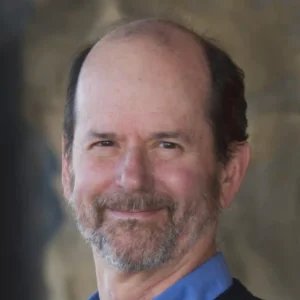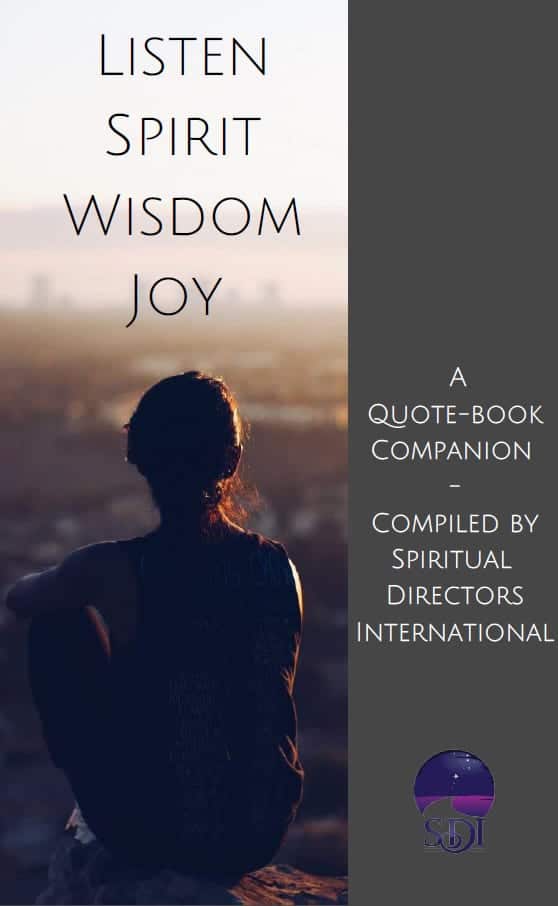
The Poet as
Compañero Espiritual
Exploring
Radiance and Resilience
in the work of
Rainer Maria Rilke
A four-part webinar
series from SDI
Presenter

Mark S. Burrows
Dates
September 4, 11, 18, 25, 2024
2PM-3:30PM PST
5PM-6:30PM EST
Find your local time zone.
Duration
6 hours (total)
Webinar will be recorded.
Ah, who knows the Earth’s losses?
Only one who yet praises aloud,
who sings the heart born into the whole.
—Rilke, Sonnets to Orpheus II.2
Hear from our presenter in this short video:
The life of German poet Rainer Maria Rilke was dedicated to deep questions of life, love, and longing. In Letters to a Young Poet, we find Rilke offering direct encouragement to a young aspiring poet – with encouragement, profound insight on creativity, solitude, and the inner journey.
How does one find encouragement when living an authentic contemplative life – which brings us into states of solitude, loneliness, and longing? How do we nurture ourselves and others, while facing our losses with honesty and courage? How do we make sense of death as part of what Rilke called “the Whole”? How do we “dance the orange,” as he invites us to do, with ecstatic joy without turning from the anguish of suffering?
Such questions, charting a spiritual path that embraces ecstasy in the face of pain, shape the heart of Rilke’s vision in his Sonnets to Orpheus. Written just over a century ago, he claimed that he “experienced” them as a “dictation” that came to him over the course of several weeks in February, 1922. An immediate sensation when they were published in 1923, they continue to draw readers, now a century later, by their bold invitation to engage life across the arc of its fullness—embracing both “beauty and terror,” as he once put it.
In 1936, with chaos looming in Europe and the world, the first English translator of these poems, J. B. Leishman, wrote that “I feel, in reading [these poems], that we have come round the spiral to another ‘dawn of consciousness,’ where language is in the making, and where myth and symbol must often supply the place of not yet thinkable thoughts. No other writer is so full of the future; no other gives us such thrilling intimations of that inheritance on whose threshold we are standing, and which our civilization may be about to enter if it does not perish through its own destructive forces.” How much truer is that vision in our times!
Join us as we explore the gifts of Rilke’s poems as a form of “spiritual exercises,” one addressed to Orpheus, that luminous figure from ancient Greek mythology whose song enchanted the wild animals and restored harmony to a disordered world. What might these poems say to us in our conflicted times? How might they invite us to turn from the depleting world of “action without vision,” as he put it, and remind us to inhabit our lives with a spacious courage and radical hope – a posture needed more than ever from spiritual directors and companions?
Join us for a transformative journey into the depths of what Rilke called our “heart-work.”
“Perhaps all the dragons in our lives are princesses who are only waiting to see us act, just once, with beauty and courage. Perhaps everything that frightens us is, in its deepest essence, something helpless that wants our love.”
― Rainer Maria Rilke, Letters to a Young Poet
Portrait of Rilke, 1900.
About Rainer Maria Rilke
Rainer Maria Rilke (1875-1926) was a renowned Bohemian-Austrian poet and novelist, celebrated for his lyrical and introspective works that delve deeply into themes of existence, beauty, and the human condition. Born in Prague, Rilke’s early life was marked by a strict upbringing and an enduring sense of alienation, which profoundly influenced his poetic voice. His most famous works include the “Duino Elegies” and the “Sonnets to Orpheus,” both written during a prolific period in the early 1920s. Rilke’s poetry is noted for its rich imagery, philosophical depth, and a delicate balance between the tangible and the ethereal, making him one of the most significant literary figures of the 20th century.
As spiritual companions, we believe that this webinar offers a unique opportunity to nourish your spirit, deepen your contemplative practice, and connect with fellow wayfarers on the journey. Join us as we unlock the treasures of Rilke’s mystical poetry and embark on a shared exploration of the boundless depths of the soul. Together, we will discover the profound relevance of Rilke’s teachings in our lives today, forging connections that transcend time and tradition.
What to Expect
This webinar series includes four weekly 90 minute sessions, Wednesdays in September, 2024 with Mark S. Burrows, exploring together on a rich and transformative journey into the mystical world of Rainer Maria Rilke’s poetry.
- Guided Reflection: Participate in guided meditations inspired by Rilke's themes of inner transformation and self-discovery.
- Insightful Exploration: Delve into the mystical and spiritual dimensions of Rilke's poetry.
- Personal Growth: Learn practical applications for integrating Rilke's wisdom into daily spiritual practices.
- Expert Facilitation: Benefit from the expertise of Mark's careful translations, and dialogue that frames the application of Rilke's poetry to our work as spiritual companions.
- Q&A Sessions: Participate in live Q&A sessions, as well as small Breakout Groups, to explore personal questions and reflections with experienced facilitators.
- Open Dialogue: Engage in open and meaningful dialogue with the presenters and fellow participants, creating a space for questions, discussions, and shared insights.
Host

Mark S. Burrows
Mark S. Burrows is an award-winning poet and theologian, translator and scholar. He is also recognized as one of the leading interpreters of Rilke’s writings and is in demand as a workshop and retreat leader on spirituality and the arts. He is also the author of a new translation of Rilke’s Sonnets to Orpheus (Monkfish, 2024) and a forthcoming book exploring Rilke’s poetic vision, You Are the Future: Living the Questions with Rainer Maria Rilke, co-authored with Stephanie Dowrick (Monkfish, 2024). A member of the Iona Community, Mark lives and writes in Camden, Maine. https://soul-in-sight.org
Additional Information
- Participants from all spiritual traditions and orientations are welcome in this webinar series as are those with all levels of spiritual experience.
- Each session will run 90 minutes. We understand that the timing of the seminar will not be convenient in every time zone on the planet. For those who have trouble making this time, a recorded copy of each session will be made available to all those who sign up.
- CEU credits are available for all those who participate. SDI will provide a certificate of completion for self-reporting to agencies. More information can be found here: continuing education units (CEUs).
- Cost: $119 for non-members, with significant discounts for SDI members
- Scholarships are available for those facing financial hardship. Please apply here.
Sonnets to Orpheus

On the centennial of the first appearance (1923) of Rilke’s Sonnets to Orpheus, award-winning translator Mark Burrows reveals their depth and meaning with a brilliant new introduction and translation.
This new translation captures the lyric beauty of Rilke’s poems, honoring their syntactic peculiarities and grammatical complexities as few translators have dared to do. Burrows’ versions maintain the essential strangeness of language and abruptness of metaphor by which the sonnets attain their distinctive character in German. Burrows’ approach replicates what one reviewer describes as the poems’ “dazzling obscurity,” refusing to resolve the deliberate difficulties Rilke’s formulations present. The effect invites readers to linger with these sonnets, allowing themselves to be shaped in their encounter with them.
“Rilke’s voice from the last tumultuous young century reaches tenderly into ours. But his lush German is a language of its own. Mark Burrows has a rare gift to coax it faithfully into English. I am delighted, and so very grateful for this book.”
—Krista Tippett, host of “On Being”








Valoraciones
No hay valoraciones aún.